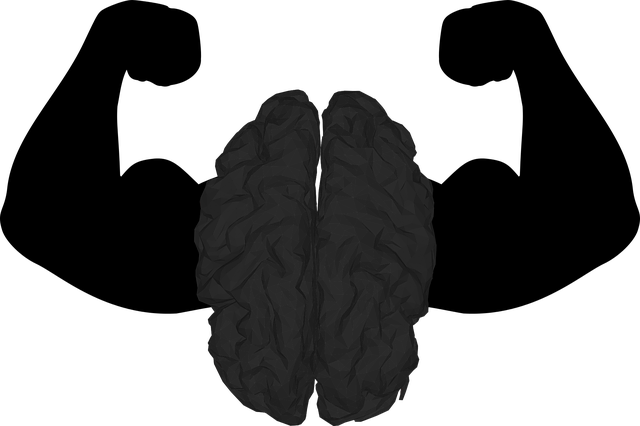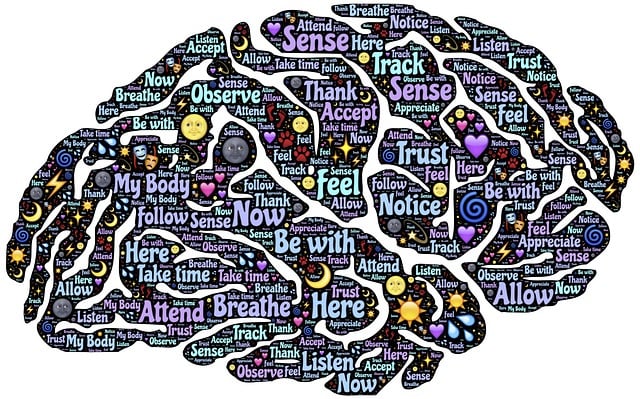Westminster Cognitive Behavioral Therapy (CBT) enhances mental wellness through its adaptive coping strategies and optimistic approach, empowering individuals to navigate life's challenges effectively. Their Recovery-Focused Methodology (RFM) challenges negative thought patterns, builds mental fortitude, and fosters a resilient mindset. Integrated exercises like mindfulness, cognitive restructuring, and exposure therapy reduce anxiety symptoms and strengthen clients' psychological frameworks. Success is measured through clear goals, tracking progress, and adapting strategies based on standardized questionnaires and mental wellness journals. Risk Management Planning and Healthcare Provider Cultural Competency Training ensure safe, effective, and culturally sensitive CBT practices.
In today’s fast-paced world, resilience is a vital asset for navigating life’s challenges. This article explores the power of Resilience-focused Mindfulness (RFM) in enhancing mental fortitude through Westminster Cognitive Behavioral Therapy (CBT). We delve into how RFM exercises, tailored to individual needs, can significantly improve patients’ coping mechanisms. By understanding resilience’s significance and implementing effective strategies, therapists in Westminster CBT practices can foster transformative growth, ultimately aiding patients in leading more fulfilling lives.
- Understanding Resilience and its Significance in Therapy
- The Role of RFM in Building Mental Fortitude
- Implementing Resilience Exercises in Westminster CBT Practice
- Measuring Success and Adapting Strategies for Optimal Patient Outcomes
Understanding Resilience and its Significance in Therapy

Resilience is a critical component of mental wellness, enabling individuals to bounce back from challenges and adversity. In the context of Westminster Cognitive Behavioral Therapy (CBT), understanding resilience involves recognizing the ability to adapt and cope with stressful situations while maintaining a sense of optimism and functionality. Building resilience through therapeutic exercises empowers clients to navigate life’s obstacles more effectively.
The implementation of Mental Wellness Journaling Exercise Guidance, for instance, can help individuals process their experiences, track progress, and cultivate positive thinking patterns. Moreover, Community Outreach Program Implementation initiatives can foster social connections, providing a support system that enhances overall resilience. By integrating these strategies, Westminster CBT offers comprehensive guidance to strengthen clients’ resilience, ultimately contributing to improved mental wellness outcomes.
The Role of RFM in Building Mental Fortitude

Resilience is a vital component of mental well-being, and that’s where RFM (Recovery-Focused Methodology) steps in as a powerful tool. This therapeutic approach, often incorporated into Westminster Cognitive Behavioral Therapy, focuses on building an individual’s capacity to adapt and bounce back from life’s challenges. By utilizing RFM, therapy clients develop a deeper sense of mental fortitude, enabling them to navigate through difficult situations with increased confidence.
The methodology encourages individuals to challenge negative thought patterns and beliefs, fostering self-esteem improvement. Through structured exercises, clients learn to assess risks in their lives, including the potential triggers that might impact their mental health. This proactive approach, when combined with positive thinking techniques, empowers individuals to take control of their emotional well-being. The ultimate goal is to help folks build a resilient mindset, making them better equipped to handle stress and adversity, as recommended by professionals in the field of mental health.
Implementing Resilience Exercises in Westminster CBT Practice

In the context of Westminster Cognitive Behavioral Therapy (CBT), integrating resilience-building exercises is a powerful approach to enhancing mental health awareness and emotional healing processes. CBT practitioners in Westminster can utilize these exercises to empower individuals in managing challenging situations, fostering adaptability, and reducing symptoms associated with anxiety relief. By incorporating resilience training into therapy sessions, practitioners create a supportive environment where clients develop effective coping strategies.
This method encourages individuals to confront and overcome obstacles, ultimately strengthening their psychological framework. Resilience exercises tailored for CBT can include mindfulness practices, cognitive restructuring techniques, and exposure therapies, all designed to help clients navigate life’s uncertainties with greater ease. Such interventions not only complement Westminster CBT practice but also play a pivotal role in equipping individuals with the tools necessary for long-lasting emotional healing.
Measuring Success and Adapting Strategies for Optimal Patient Outcomes

Measuring success is a critical component of any therapy program, including Westminster Cognitive Behavioral Therapy (CBT). By implementing clear and quantifiable goals, therapists can assess the effectiveness of their interventions. This involves regularly tracking patient progress using various tools and metrics tailored to CBT techniques. For instance, reducing anxiety or depressive symptoms, as measured by standardized questionnaires, is a common indicator of success. Additionally, therapists can encourage patients to maintain mental wellness journals to track their thoughts, feelings, and behaviors, providing valuable insights for therapy adjustments.
Adapting strategies based on these measurements is essential for optimal patient outcomes. If certain techniques prove ineffective, therapists should be flexible in modifying their approaches. This might involve incorporating new exercises or adjusting existing ones, such as tailoring Mental Wellness Journaling Exercise Guidance to better suit individual needs. For mental health professionals, Risk Management Planning plays a vital role in ensuring safe and effective practice. Similarly, Healthcare Provider Cultural Competency Training can enhance the therapist’s ability to connect with diverse patient populations, thereby improving overall care quality.
In conclusion, integrating resilience-building exercises using RFM (Resilience Factor Model) into Westminster Cognitive Behavioral Therapy (CBT) practices has shown significant potential in enhancing patients’ mental fortitude. By understanding the importance of resilience in therapy and employing tailored strategies, practitioners can effectively support individuals in navigating life’s challenges. Measuring success through various outcomes and adapting these exercises ensures optimal patient experiences, ultimately fostering stronger, more resilient minds within the context of Westminster CBT.














